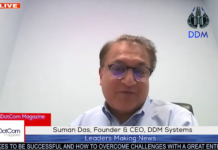Topological insulators represent a fascinating class of materials that have garnered significant attention in the fields of condensed matter physics and materials science. These materials exhibit unique electronic properties that are protected by the principles of topology, a branch of mathematics concerned with the properties of geometric objects that remain unchanged under continuous deformations. Topological insulators are distinguished by their ability to conduct electricity on their surface while remaining insulating in the bulk, thanks to the presence of robust conducting states known as topological surface states or edge states. This property makes them promising candidates for next-generation electronic devices, quantum computing, and spintronics applications.
Here are ten important aspects of Topological Insulators:
- Topology and Electron States: Topological insulators are characterized by their non-trivial topology, which leads to the formation of protected surface or edge states. These states arise due to the strong spin-orbit coupling and symmetry properties of the material, conferring unique electronic behaviors that are robust against disorder and perturbations.
- Surface States: The hallmark of topological insulators is the presence of metallic surface states within the bulk band gap. These surface states are protected by time-reversal symmetry and exhibit Dirac-like dispersion relations, akin to relativistic particles, such as Dirac fermions. They are immune to backscattering and offer high mobility, making them ideal for spin-based electronics and quantum information processing.
- Bulk Insulating Property: Despite their conducting surface states, topological insulators possess an insulating bulk. This characteristic is crucial for applications where low dissipation and high efficiency are desired, as it minimizes energy losses and unwanted electrical leakage.
- Spintronics Applications: Topological insulators are promising for spintronic devices due to their ability to manipulate and control the spin of electrons. The spin-momentum locking of surface states enables efficient generation, detection, and manipulation of spin currents, potentially revolutionizing data storage and processing technologies.
- Quantum Anomalous Hall Effect (QAHE): In certain topological insulator systems, under specific conditions such as magnetic doping or application of an external magnetic field, the QAHE can be observed. This effect results in the emergence of dissipationless edge currents with quantized conductance, providing a robust platform for low-power electronics and metrology.
- Topological Quantum Computing: Topological insulators are being explored for their potential in quantum computing, particularly for realizing topological qubits. These qubits are inherently robust against decoherence and errors due to their topologically protected quantum states, offering a promising route towards fault-tolerant quantum computation.
- Experimental Realization: The discovery and experimental realization of topological insulators have primarily focused on materials such as bismuth telluride (Bi2Te3), bismuth selenide (Bi2Se3), and their derivatives. These materials exhibit strong spin-orbit coupling and suitable band structures that support topologically protected surface states.
- Material Engineering: Advances in material synthesis and engineering are crucial for optimizing the properties of topological insulators. Researchers are exploring novel synthesis techniques, heterostructure engineering, and interface control to enhance the stability, scalability, and functionality of these materials for practical applications.
- Topological Phase Transitions: Topological insulators can undergo phase transitions under certain conditions, such as varying temperature, magnetic field, or chemical doping. These transitions can lead to the emergence of new topological phases, such as topological superconductors or Weyl semimetals, expanding the scope of topological materials research.
- Future Directions: The field of topological insulators is rapidly evolving, with ongoing efforts focused on understanding fundamental properties, exploring new materials, and advancing technological applications. Future research aims to overcome current challenges, including achieving higher operational temperatures, reducing material defects, and integrating topological insulators into practical devices.Topological insulators represent a frontier in materials science and condensed matter physics, offering unique electronic properties that hold promise for revolutionizing various technological fields. As research progresses, these materials are expected to play a pivotal role in the development of next-generation electronics, quantum computing, and spin-based technologies, paving the way towards more efficient and advanced devices.
Topological insulators continue to captivate researchers due to their potential to transform multiple areas of technology and fundamental physics. The discovery and exploration of these materials have opened up new avenues for understanding quantum phenomena and harnessing them for practical applications. Their unique electronic properties, protected by topology, have sparked intensive research efforts globally, aiming to unlock their full potential in diverse fields. Here, we delve deeper into the intricacies and implications of topological insulators, highlighting their significance and ongoing developments.
The field of topological insulators has grown significantly since the initial theoretical predictions and experimental discoveries in the early 2000s. These materials have sparked a wave of exploration into their fundamental properties, technological applications, and potential for advancing our understanding of quantum states of matter. The term “topological insulators” itself underscores their distinctive nature, where topology plays a critical role in defining their electronic behavior. This robustness against perturbations and disorder makes them particularly promising for applications requiring stable and efficient electronic transport.
Topological insulators have been identified in various material systems, with notable examples including bismuth telluride (Bi2Te3), bismuth selenide (Bi2Se3), and related compounds. These materials exhibit a unique band structure where the bulk states are insulating, while conducting surface or edge states emerge within the band gap. These surface states are characterized by their topological protection, ensuring they remain conductive and robust against scattering mechanisms that typically degrade electronic transport in conventional materials.
In experimental studies, researchers have employed advanced techniques such as angle-resolved photoemission spectroscopy (ARPES), scanning tunneling microscopy (STM), and transport measurements to elucidate the electronic properties of topological insulators. ARPES has been instrumental in directly imaging the Dirac-like surface states, confirming their dispersion relation and spin-momentum locking. STM studies have provided insights into the atomic-scale structure and electronic interactions at the surface, highlighting the role of surface termination and defects in influencing the properties of topological insulators.
Applications of topological insulators span a wide range of fields, from spintronics and quantum computing to energy harvesting and novel electronic devices. In spintronics, the ability to manipulate spin-polarized currents facilitated by the spin-momentum locking in surface states holds promise for developing energy-efficient spin-based devices and memory elements. The concept of topological protection is also pivotal in quantum computing, where topologically protected qubits could offer significant advantages in terms of coherence times and error correction compared to conventional qubits.
The emergence of the Quantum Anomalous Hall Effect (QAHE) in certain topological insulator systems underpins their potential for realizing dissipationless electronic transport at zero magnetic field. This effect, which manifests as quantized Hall conductance in the absence of an external magnetic field, could lead to the development of ultra-low-power electronics and metrological devices with unprecedented precision. Achieving and stabilizing the QAHE state in practical materials remains a focal point of current research efforts.
Material engineering plays a crucial role in advancing the field of topological insulators. Researchers are exploring strategies to enhance the crystal quality, control surface states, and engineer heterostructures to manipulate electronic properties. Techniques such as molecular beam epitaxy (MBE) and chemical vapor deposition (CVD) enable precise control over material composition and layer thickness, crucial for tailoring the electronic band structure and optimizing device performance.
Looking forward, the future of topological insulators hinges on addressing key challenges and advancing fundamental understanding. Challenges include overcoming material defects, enhancing scalability for industrial applications, and exploring new topological phases beyond the conventional insulating states. The discovery of topological superconductors and Majorana fermions in hybrid structures involving topological insulators opens up new frontiers in quantum information processing and quantum computing, with potential applications in fault-tolerant qubits and topological quantum computation.
In conclusion, topological insulators represent a frontier in materials science and condensed matter physics, offering unique electronic properties governed by topology. Their discovery has sparked a paradigm shift in our understanding of electronic transport and quantum phenomena. As research continues to unravel their intricate properties and explore new avenues for technological applications, topological insulators are poised to catalyze innovations across diverse fields, from electronics and computing to quantum technologies and beyond.

















